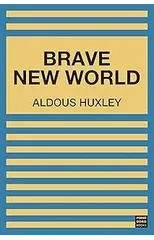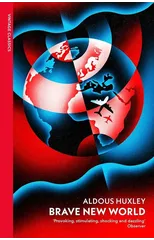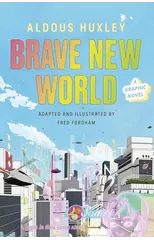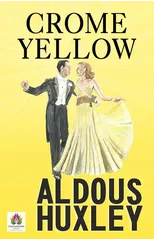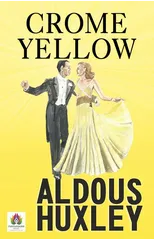"A fantasy of the future that sheds a blazing critical light on the present--considered to be Aldous Huxley's most enduring masterpiece. Mr. Huxley is eloquent in his declaration of an artist's faith in man, and it is his eloquence, bitter in attack, noble in defense, that, when one has closed the book, one remembers. A Fantastic racy narrative, full of much excellent satire and literary horseplay. It is as sparkling, provocative, as brilliant, in the appropriate sense, as impressive as the day it was published. This is in part because its prophetic voice has remained surprisingly contemporary, both in its particular forecasts and in its general tone of semiserious alarm. But it is much more because the book succeeds as a work of art. This is surely Huxley's best book"--P. [4] of cover.
Aldous Huxley
Aldous Huxley was a British writer and philosopher known for his dystopian novel "Brave New World," published in 1932. His works often explored themes of technology, society, and the human condition. Huxley's writing style was characterized by his use of satire and wit, as well as his keen observations of society. He was a prominent figure in the literary genre of dystopian fiction, influencing writers such as George Orwell and Margaret Atwood. In addition to "Brave New World," Huxley's other notable works include "Point Counter Point" and "The Doors of Perception." His contributions to literature continue to be celebrated for their thought-provoking commentary on the complexities of human existence.

